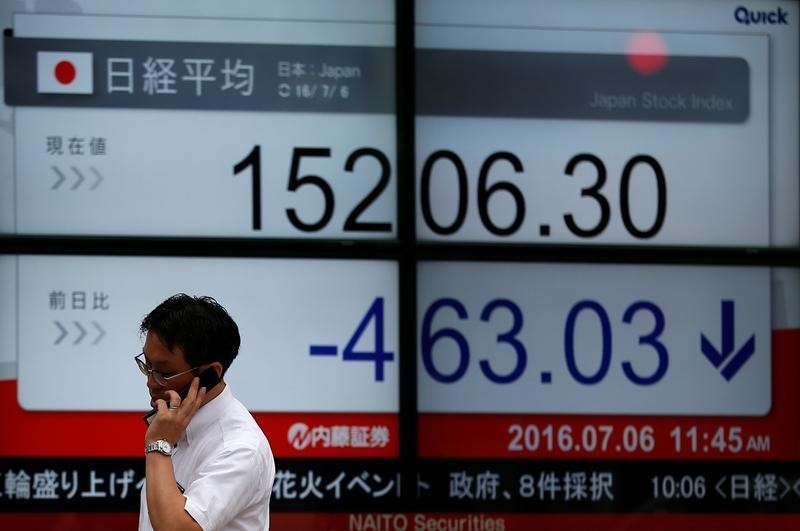© Reuters.
Investing.com– Most Asian stocks retreated on Monday as concerns over the Israel-Hamas war kept risk sentiment weak, with Japan’s Nikkei index leading losses amid jitters before key inflation data this week.
Markets remained on edge over a spillover in the Israel-Hamas conflict into the broader Middle East region, as Israel prepared for a ground assault on the Gaza strip. But U.S. Secretary of State Antonty Blinken said that Arab states did not want a spillover of the conflict.
Still, risk appetite remained weak, also coming under pressure from fears of rising U.S. interest rates, following a stronger-than-expected inflation reading last week.
Japan’s Nikkei tumbles amid profit taking, tech rout
The was the worst performer among its peers on Monday, sliding 1.9% with tech stocks bearing the brunt of selling.
The index had seen a strong run-up last week as expectations of a dovish Bank of Japan and relative strength in Japanese firms attracted a slew of foreign buyers.
But worsening risk appetite now saw investors lock-in recent profits, with tech seeing the largest degree of selling as markets also feared higher U.S. interest rates.
Investors also turned cautious on Japan before key for September, due later this week. Any signs of sticky inflation could give the BOJ more impetus to tighten policy.
Broader Asian markets retreated. South Korea’s I shed 1%, while Australia’s fell 0.2%.
Futures for India’s index pointed to a positive open, especially after data last week showed consumer inflation eased in September. from India is due later on Monday.
Chinese stocks subdued with GDP, rate decision in focus
China’s and indexes fell 0.6% and 0.4%, respectively, while Hong Kong’s index lost 0.1%.
Sentiment towards China remained on edge before key third-quarter data due later this week, which is expected to show continued weakness in growth.
The People’s Bank of China is also set to decide on its key later in the week, although a change appears likely after the PBOC kept its medium-term loan rates unchanged.
Still, state media said on Monday that more rate cuts by the PBOC were still on tap this year, considering that economic growth slowed substantially despite the lifting of anti-COVID measures. Business activity data released earlier in October also painted a dour picture of Asia’s largest economy.
Read the full article here


